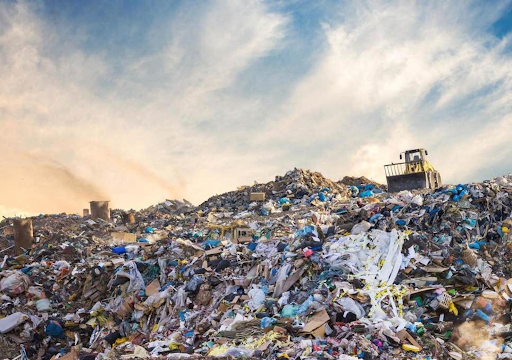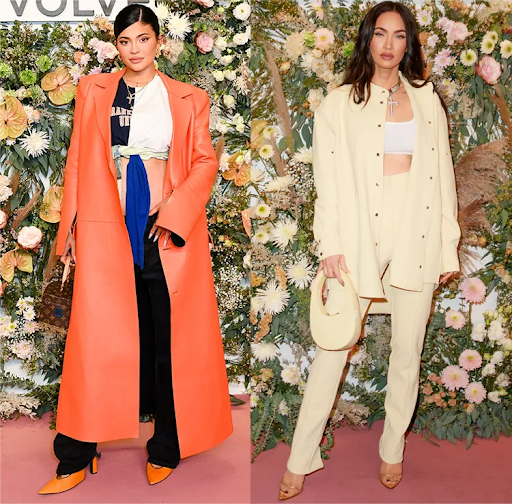Why Did a Revolve Heel Just Step on my Tabi’s?: Fast Fashion’s Place at Fashion Week
New York Fashion Week (NYFW) took place at the beginning of this month as renowned, luxury brands such as Rodarte, Telfar, and Moschino dazzled in their showcasing of upcoming collections. However, given the rise of fast fashion in the industry, NYFW looked a bit different this year.
Fast fashion is defined as cheap, trendy clothing that samples ideas from the catwalk or celebrity culture and turns them into garments in high street stores at breakneck speed to meet consumer demand. More importantly, fast fashion has an enormous environmental impact regarding its footprint for both production and disposal. Not only does fast fashion clothing production require a considerable amount of energy and resources, but it also relies on toxic fabric dyes and other chemicals that contaminate freshwater. Unfortunately, fast fashion brands like Forever 21, Zaful, Boohoo, Fashion Nova, H&M, Urban Outfittersproduce a tenth of the world’s carbon emissions.
Now more than ever, there has been a fervent call for more eco-friendly measures in clothing production. In March 2020, The Council of Fashion Designers of America, partnered with the Boston Consulting Group to release a landmark study called Sustainability by Design: Rethinking New York Fashion Week. This addressed issues related to waste, pollution, and more in the fashion industry, “Demand for sustainability from [fashion brands and designers] started to develop in the last three years. Clients wanted to know how things were sourced, what happens to them afterward, how energy is used, and how to reduce their carbon emissions.” Before this publication, consumers were already beginning to raise concerns about the impact of waste produced in the course of each fashion show. Some brands, such as Alice & Olivia, Zero & Maria, and Imitation of Christ were all in attendance this season, taking measures to make the events more sustainable Even so, “NYFW is not exactly a picture of sustainability. The need for collective effort to survive the crisis is forcing industry players and consumers to realize that their actions—as individuals, company employees, and citizens—have real consequences.” In light of this, many have been left puzzled over the milestone presence of fast fashion brands at this year’s NYFW, such as Revolve and PrettyLittleThing.
As of April 2021, Revolve, an online fashion retailer and influencer favorite founded in 2003 has announced new sustainability initiatives through partnerships and more eco-friendly offerings on its e-commerce platform. Considering their eighteen years neglecting this topic and their main functionality through excess, launching over 1,000 styles per week, the brand bears significant gaps in transparency. And although they have started to carry small eco and ethical designers (to which buyers should cut out the middleman anyways and order directly from these websites), Revolve still owns eight out of ten of their top-selling brands. In 2018, Good On You, the world’s best and most reliable source of ethical fashion knowledge, rated Revolve a 1 out of 5, stating, “REVOLVE provides insufficient relevant information about how it reduces its impact on people, the planet or animals. You have a right to know how the products you buy affect the issues you care about.” With Fashion Nova quality and luxury price, this 1.5 billion dollar brand is simply expensive fast fashion.
Revolve made an appearance at NYFW in a variety of ways. It first held a runway show on the roof of Casa Cipriani to celebrate its collaboration with Peter Dundas, the former creative director of Roberto Cavalli and Emilio Pucci. Next, The Revolve Gallery, a massive 17,000-square-foot showcase at Hudson Yards, launched its press preview on Thursday. It was first open to the general public on September 10th. These showcases also gave rise to the excessive ready-to-wear trend, selling out almost immediately after pieces went live in tandem with their NYFW show and have already been restocked. Influencers and celebrities who showed their support at these events included Kylie Jenner, Emily Ratajkowski, Megan Fox, and Paris Hilton. Raissa Gerona, Revolve’s chief brand officer, was quoted by Glossy Magazine stating, “We felt like New York needed a new sense of energy. Revolve is able to provide that with [this] different experience.”
Similarly, on September 9th, fast fashion brand PrettyLittleThing debuted its first NYFW collection at Gotham Hall. As of 2021, PrettyLittlething’s rating from Good On You was given a “Not Good Enough,” claiming that, “It doesn’t use eco-friendly materials, instead opting for planet-damaging polyester in most of its lineup. There is no evidence it has taken meaningful action to reduce or eliminate hazardous chemicals, nor does it implement any water reduction initiatives… There is a long way to go before this brand could be considered good for the planet!” This Good On You review also stated that PrettyLittleThing “sits up there in our top ten fast fashion brands we avoid at all costs!”
While it is compelling that such significant fashion events have chosen to include less exclusive brands, it does not bode well overall. Yes, there have been admirable strides in migration towards a more sustainable industry, but giving such wasteful and enormous fast fashion companies an even larger platform at New York Fashion Week only aids in perpetuating the impact brands like Revolve and PrettyLittleThing have on the environment. Perhaps this could change if the fast fashion industry begins to transform for the better. Here’s hoping for a more environmentally friendly fashion future!
Strike out,
Gracie Wipfli
Boca Raton



